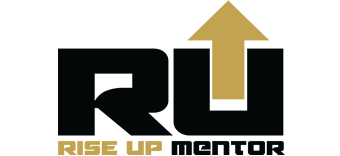 https://riseupmentor.com/wp-content/uploads/2023/12/Motivate-17-Live-Today-as-Tomorrow-Is-Uknown-1920x1080-No-Logo.jpg
1080
1920
Rise Up Mentor
https://riseupmentor.com/wp-content/uploads/2023/12/RiseUpMentor-Black-Logo-340x156-1.png
Rise Up Mentor2023-12-16 03:45:132023-12-16 03:45:15Ep. 34: Live Today as Tomorrow is Unknown
https://riseupmentor.com/wp-content/uploads/2023/12/Motivate-17-Live-Today-as-Tomorrow-Is-Uknown-1920x1080-No-Logo.jpg
1080
1920
Rise Up Mentor
https://riseupmentor.com/wp-content/uploads/2023/12/RiseUpMentor-Black-Logo-340x156-1.png
Rise Up Mentor2023-12-16 03:45:132023-12-16 03:45:15Ep. 34: Live Today as Tomorrow is UnknownIt’s not uncommon to construct our own additional or unnecessary stressors. We craft pressure through self-imposed expectations, comparisons, and a relentless pursuit of perfection. This self-inflicted stress can taint our experience, distorting our priorities and diverting energy from what truly matters. By recognizing the patterns that lead us down this path, we can regain control, embrace self-compassion, and learn to navigate life’s challenges with a healthier perspective. It’s time to shed light on the ways we inadvertently weave stress into our lives and discover the liberation that comes from dismantling these unnecessary burdens.
- Perfectionism Paralysis: Striving for perfection in every task can lead to an overwhelming fear of failure. The constant need to meet impossibly high standards creates unnecessary stress, hindering progress and sapping confidence. Instead of focusing on growth, the quest for flawlessness becomes a relentless burden.
- Comparative Overload: Constantly measuring oneself against others’ achievements and lifestyles breeds discontentment and anxiety. The curated highlight reel of social media amplifies feelings of inadequacy, causing unnecessary stress as individuals try to keep up with unrealistic standards set by others.
- Micromanaging Minor Details: Fixating on every minute detail, even those inconsequential to the big picture, can lead to analysis paralysis. Overthinking and endlessly fine-tuning decisions consume valuable time and energy, diverting focus from more significant tasks and causing stress over matters that ultimately have minimal impact.
The ability to conquer these unnecessary stressors is attainable through self-awareness, mindfulness, and adaptive strategies. Recognizing patterns like perfectionism, comparative overload, and micromanagement allows us to take proactive steps. With practice, we can reframe our mindset, prioritize self-care, and channel our energy towards what truly matters, fostering lasting well-being.
Set Realistic Goals: Replace unattainable perfection with achievable objectives. Setting reasonable goals empowers progress and reduces the paralyzing fear of not meeting impossible standards.
Delegate Responsibilities: Combat micromanagement by delegating tasks. Trusting others and sharing responsibilities not only lightens your load but also nurtures a sense of teamwork and collaboration.
Prioritize Tasks: Focus on what truly matters. Identify tasks that have a significant impact and let go of minor details that contribute to unnecessary stress.
Challenge Negative Thoughts: When negative self-talk arises, challenge its validity. Replace self-criticism with self-compassion and affirmations that counter perfectionism’s grip.
Celebrate Achievements: Shift your focus from comparison to celebration. Acknowledge your accomplishments and progress, no matter how small they may seem.
Learn to Say No: Practice saying no to commitments that don’t align with your priorities. This avoids overloading yourself with tasks that contribute to stress.
Practice Self-Reflection: Regularly reflect on your progress and accomplishments. This practice combats comparative overload and fosters a healthy sense of self-worth.
As we go through life, it’s not uncommon that we create unnecessary stress through our own expectations and constant comparisons. This internal pressure skews our focus and saps our energy. The remarkable truth is, we possess the ability to reshape this narrative. By acknowledging the constraints of perfectionism, shedding the weight of comparison, and relinquishing the grip of micromanagement, we pave a liberating path. Through self-awareness, thoughtful decisions, and adaptable strategies, we break the chains. Let’s rewrite our story, embracing self-kindness, setting achievable objectives, and giving precedence to what truly holds value. The road to serenity is within our grasp; let’s embark on the voyage towards enduring well-being and joyously celebrating each stride.
































